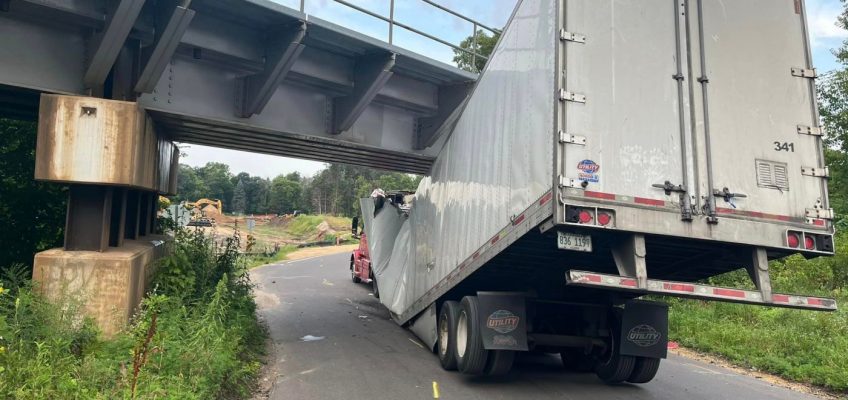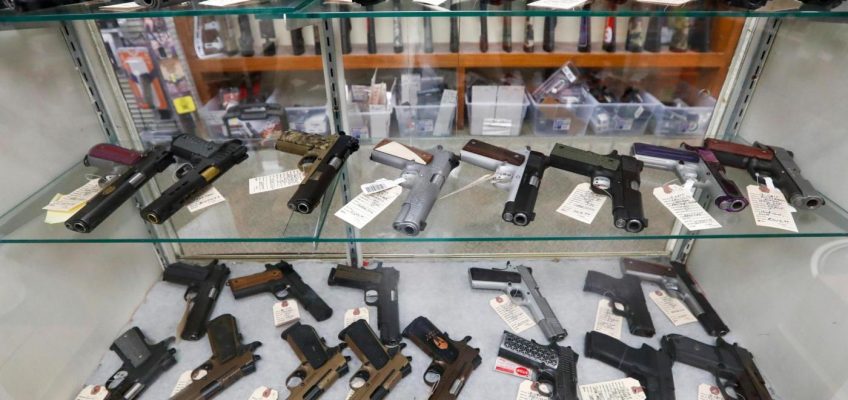A 39-year-old Newport man was sentenced Tuesday to 30½ years in prison for fatally shooting his cousin at the Newport Transit Center, shortly after they met to go shopping.
Sylvester Tremaine Jones pleaded guilty in May to second-degree intentional murder-not premeditated for killing Terrell Eshawn McIntyre, a 39-year-old from Coon Rapids who was found in his SUV dead of multiple gunshot wounds. Jones was arrested the night of the killing and later admitted to it, according to the criminal complaint, which does not mention a motive.
Terrell Eshawn McIntyre, 39, of Coon Rapids, was fatally shot at the Newport Transit Center on Feb. 6, 2023. (Courtesy of the Washington County Sheriff’s Office)
The sentence handed down by Washington County District Judge Siv Mjanger was the result of a plea agreement that requires Jones to serve the maximum presumptive sentence called for by state sentencing guidelines. He was ordered to pay $8,500 in restitution for reimbursement of funeral expenses.
Jones’ attorney, Rebecca Waxse, said at sentencing the killing would not have happened but for Jones’ struggles with his mental health. She said they reviewed his mental health records leading up to his guilty plea and decided not to move forward with a mental health defense.
“But I think he’s in a better place today,” Waxse said. “And I just want the court to be aware that the man standing before you is not an evil monster. He’s a really good person who had a horrible situation, made a horrible mistake.”
In a statement afterward, County Attorney Kevin Magnuson said, “Our thoughts go out to the family of the victim of this totally senseless crime. Any homicidal violence in our community is terrifying but, thankfully, rare.”
He shot between eight and 10 times
Deputies were called to the transit center parking lot — located at 250 Red Rock Crossing, south of Interstate 494 — just before 11 a.m. Feb. 6, 2023, after a witness saw a man slumped over in the driver’s seat of an SUV, and a pool of blood on the ground.
Deputies found a black 2016 Ford Escape with the front driver’s side door open and McIntyre slumped in the driver’s seat with his left leg hanging out of the SUV. He was dead.
Spent .22-caliber bullet casings were found inside the SUV and on the ground just outside of it. The SUV had no damage to suggest that shots were fired through the vehicle from outside of it, the complaint says.
A sheriff’s detective interviewed the 911 caller, who said that he had seen a man walking from the direction of the SUV toward the adjacent apartment complex. A review of nearby video surveillance backed up what the caller said he saw.
Detectives reviewed sheriff’s office records and learned that the SUV had been issued a parking ticket on Nov. 15 when it was parked in front of Jones’ home in the 1700 block of First Avenue North, about three blocks from the transit station.
A detective spoke with a relative of McIntyre and was told that he and Jones were cousins.
Deputies reviewed video surveillance from the apartment complex near the transit station parking lot. It showed that McIntyre arrived at the lot in the SUV at 9:34 a.m. and that 10 minutes later Jones got into the passenger seat. About 19 seconds later, Jones got out and walked out of the camera’s view.
During a search of Jones’ residence, detectives found in his bedroom a Sig Sauer .22-caliber handgun on the floor, several boxes of ammunition and clothes that matched those the suspect was seen on video wearing. Jones was home when the search warrant was served and he was arrested.
Sylvester Tremaine Jones (Courtesy of the Washington County Sheriff’s Office)
In an interview, Jones said he had exchanged text messages with McIntyre about meeting at the apartment complex parking lot and his cousin bringing him to a Target store. He said he shot McIntyre between eight and 10 times.
Seven bullets or bullet fragments were recovered from McIntyre’s body during an autopsy. The gunshots included one that entered his leg and severed his femoral artery.
Minnesota court records show Jones has one previous felony conviction — possessing a firearm with an altered serial number in 2010 in Ramsey County.
A father first
McIntyre was a bit of an introvert who mostly enjoyed going to work and taking care of his son, said his mother, Katherine Jones, in a victim impact statement read by Assistant Washington County Attorney Keshini Ratnayake.
McIntyre was a wonderful child and had a great life “until it was abruptly taken from him,” his mother’s statement read.
Sylvester Jones told the court before receiving his sentence that he realizes McIntyre died “too early from something I did. And I just apologize for the whole situation.”
Convicted Apple River stabber Nicolae Miu faces sentencing on Wednesday: What to know
Mary Moriarty is facing backlash. But she has vowed to endure.
Jury acquits boyfriend of former St. Kate’s dean accused of swindling $400K from the school
Man shot at busy St. Paul bus stop in robbery of his e-bike
Minneapolis carjacking and shooting suspect charged with fleeing St. Paul police, hitting house




